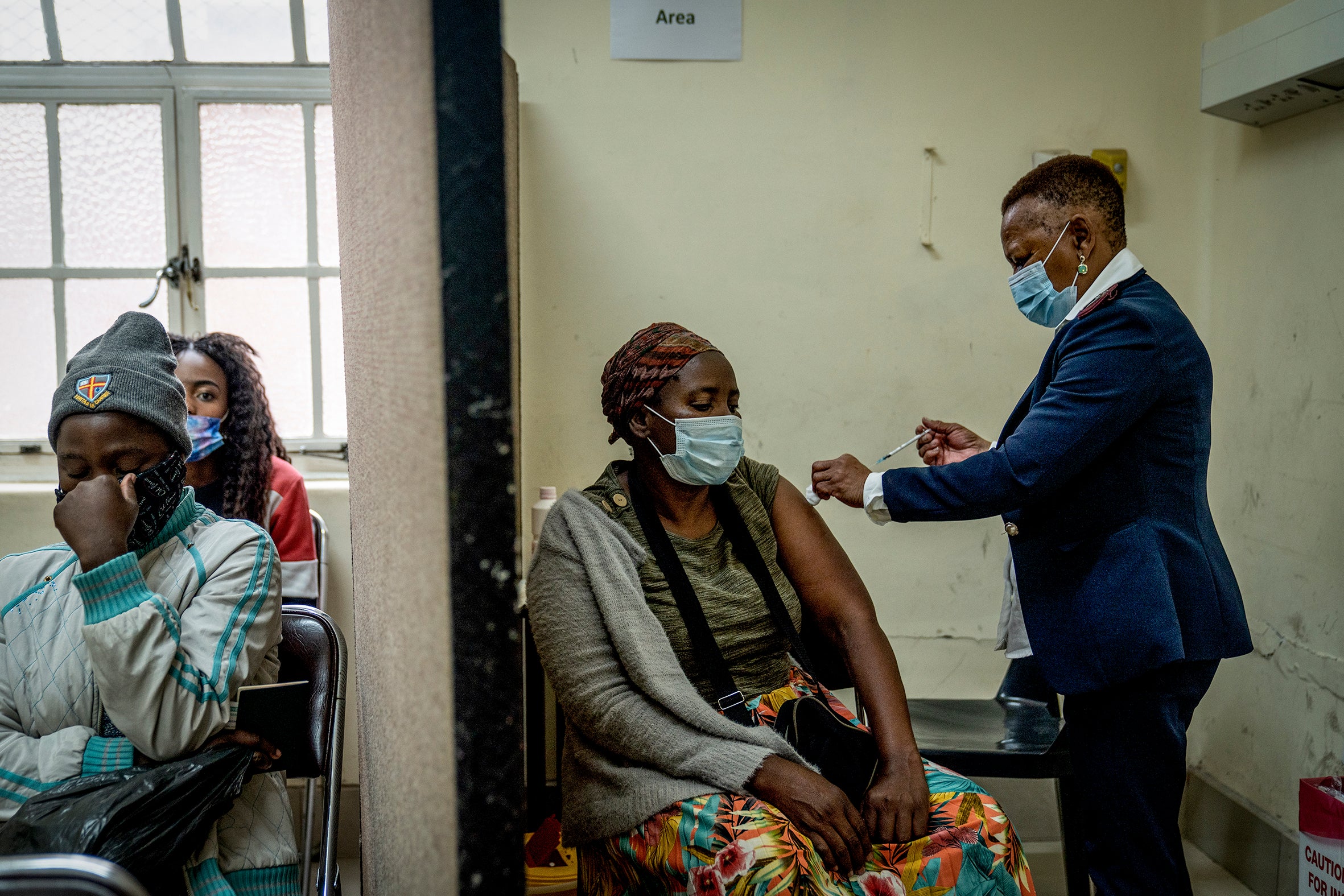Plans to help economies in Africa recover from Covid must involve the poorest communities
In the attempt to find ways out of this crisis that is disproportionately affecting the world’s least structured economies, financial inclusion is critical

Your support helps us to tell the story
From reproductive rights to climate change to Big Tech, The Independent is on the ground when the story is developing. Whether it's investigating the financials of Elon Musk's pro-Trump PAC or producing our latest documentary, 'The A Word', which shines a light on the American women fighting for reproductive rights, we know how important it is to parse out the facts from the messaging.
At such a critical moment in US history, we need reporters on the ground. Your donation allows us to keep sending journalists to speak to both sides of the story.
The Independent is trusted by Americans across the entire political spectrum. And unlike many other quality news outlets, we choose not to lock Americans out of our reporting and analysis with paywalls. We believe quality journalism should be available to everyone, paid for by those who can afford it.
Your support makes all the difference.Last week, the foreign secretary Liz Truss announced the launch of British International Investment, a body endeavouring to leverage private capital for investment in countries across Asia, Africa and the Caribbean. To “build back better” and aid recovery from the disastrous economic consequences of the global Covid-19pandemic. It is the right time to recognise the capacity gaps in the emerging economies on the African continent and mobilise our efforts to address these imbalances.
At the end of 2020, the World Bank noted that between 26 million and 40 million additional people could be pushed into extreme poverty. It is clear that for most ambitious nations in Africa, economic development and growth require continued investment that needs to be prioritised and directed towards all citizens. Specifically, we should focus on financial inclusion: the ability for people to be part of the national economic infrastructure.
There are financially excluded families in the UK. The lockdown measures and widespread closure of bank branches disproportionately affected the most economically vulnerable who rely on these services more, to cash cheques, wire money internationally, negotiate a loan or extend an overdraft. But of course the issue is more pressing in the developing world, nowhere more than in Africa.
Africa has an unprecedented opportunity to ensure that the potential of external investment impacts significant numbers of Africans, and in particular marginalised communities. Coordinated economic inclusion programmes can help boost the income, assets and access to capital and finance of the world’s poorest individuals and households – the very populations that have suffered the most from the economic downturn of the pandemic.
Financial inclusion programmes are not only about showing support, they are about putting robust frameworks in place to withstand future disasters.
In Africa, this problem, amplified by the pandemic, requires urgent policy responses. More than 80 per cent of public measures taken on the continent since the beginning of the pandemic are in the form of cash assistance, according to a 2020 IMF study.
Digital systems have facilitated the processing and payment of unprecedented amounts of relief grants to the most disadvantaged groups and small businesses to mitigate the impact of the pandemic as much as possible. Banks and technology have a significant role to play.
Although not the only one, Togo is a prime example of an African country reaping the rewards of its financial inclusion agenda; in 2019, the West African Monetary Union highlighted Togo as the country with the highest banking rate in the region, at 78 per cent.
This is in large part thanks to government-backed mobile and digital banking, which enables the dedicated Ministry of Financial Inclusion to access reliable data and to quickly roll out its support measures. Over the past few years, this infrastructure has been used to distribute microloans to entrepreneurs, targeting women specifically, so they can transition into the formal economy. And more recently, this infrastructure and associated remittance platforms have, via mobile banking, enabled the nascent welfare system to quickly disburse cash payments to a growing number of its population, especially marginalised, low-income groups, often living in rural areas.
To keep up to speed with all the latest opinions and comment sign up to our free weekly Voices newsletter by clicking here
In the attempt to find ways out of this crisis that is disproportionately affecting the world’s least structured economies, financial inclusion is critical. If people are disconnected from the financial system, then money rarely reaches them, and they are condemned to a life of subsistence. Without a serious financial inclusion effort, aligned with technology, there is a risk communities will remain stuck in the informal economy, where no financial mechanism can exist to provide capital for investment and job creation and no tax base can be facilitated to provide public services.
Many countries have understood the need to incorporate financial inclusion into broader policy considerations to counterbalance some of Africa’s challenges by enabling more direct access to transparent and open financial services.
It is essential that the external investment that flows into Africa be directed to programmes that understand the significance of financial inclusion and seize the moment to accelerate the economic development and progress for the maximum benefit of the maximum number of people in Africa.
Former Conservative MP Mark Simmonds was minister for Africa from 2012 to 2014
Join our commenting forum
Join thought-provoking conversations, follow other Independent readers and see their replies
Comments